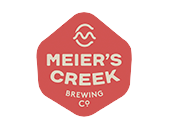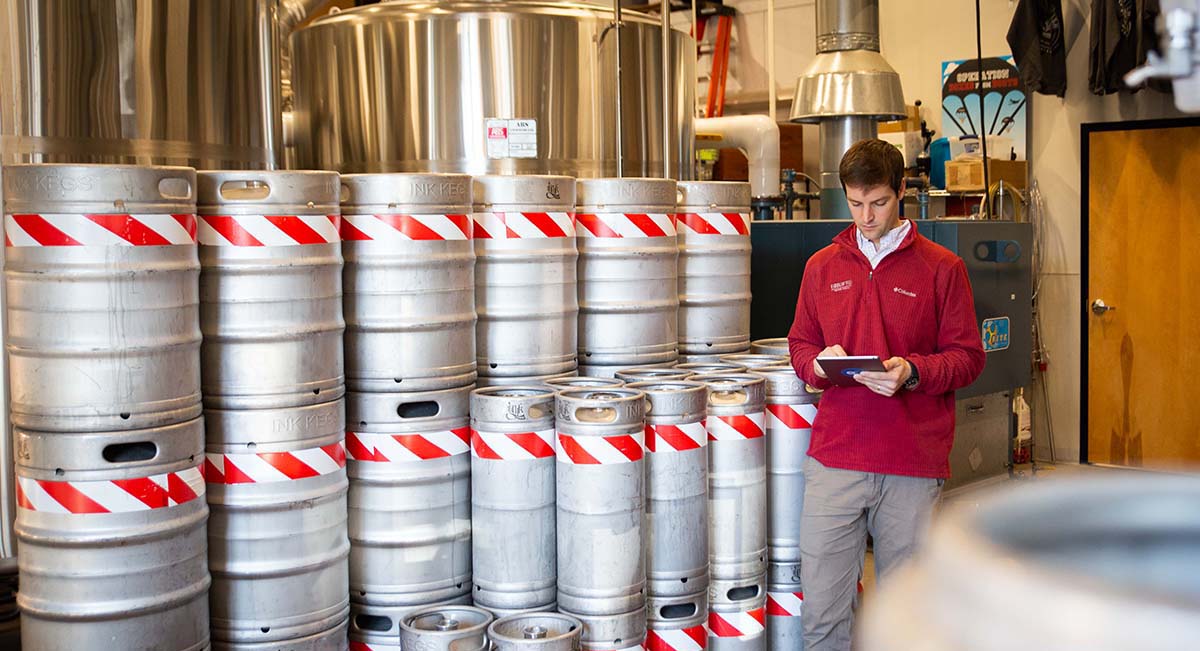Producing alcohol in the United States is a complex undertaking, made only more complicated by a legal environment that’s not always conducive to productivity or efficiency. But thanks to a newly introduced law, that process might become a little more straightforward for any craft beverage makers, especially those interested in fruit-based alcoholic beverages.
You might have already heard about it; the newly introduced Bubble Tax Modernization Act is currently making its way through the U.S. Congress, with implications that could become significant in terms of tax relief, simplified reporting requirements, and increased profits.
Of course, with any law or legal process, it’s not necessarily straightforward. That’s why we’ll break down the details of the new law below, from an introduction of the bill itself to the issues that led to its creation and its implications for craft beverage makers if passed.
What is the Bubble Tax Modernization Act (HR 7029)?
First introduced by representatives Earl Blumenauer and Mike Kelly in the U.S. House of Representatives this January, the bipartisan Bubble Tax Modernization Act has a simple goal: to reduce the extra tax traditionally imposed on lower-alcohol fruit wine, ciders, and mead.
As Rep. Blumenauer explained in a statement to Wine Industry Advisor,
“We must take every opportunity to support cidermakers, especially as the craft beverage industry recovers from the ravages of the pandemic. Right now, it is not a level playing field for cider, which is taxed more heavily than other carbonated, fruit-based beverages.”
More specifically, the bill addresses the current legal challenge by building a more general definition of wine to include beverages with a low alcohol by volume (ABV). Carbonation taxes will be applied more uniformly across the board, enabling more creativity in the development of fruit-based alcoholic beverages without the fear of losing potentially significant profitability.
Perhaps not surprisingly, the proposed new law has found significant support throughout the industry. The American Cider Association, American Mead Makers Association, and Wine America have all expressed their open support for its passing to help cider, mead, and winemakers of all sizes improve their competitiveness and chances of business success.
Current Issues With the Bubble Tax
According to industry advocates and legislative sponsors, the new law is necessary due to how the current bubble tax disadvantages certain types of low-ABV beverages. The current so-called “bubble tax” taxes carbonated fruit wine, mead, and cider at significantly higher rates than grape wines, at over $3.30 per gallon for the former compared to just $1.07 per gallon for the latter.
Meanwhile, fruit-based beers, seltzers, and cocktails do not require additional taxation for their carbonated nature at all. Those differences become more significant when put in the quantities craft beverage makers produce:
- Producing 100 gallons of traditional cider costs $22 in federal taxes alone.
- Producing 100 gallons of grape wines costs $107 in federal taxes alone.
- Producing 100 gallons of sparkling fruit-based ABV beverages costs $330 in federal taxes alone.
Related: Don’t Forget This Crucial Part of a Hard Cidery Business Plan
It’s easy to see how the last category was nearly impossible for most beverage makers to produce without losing significantly in the realm of competitiveness. While unintentional, the bubble tax created an uneven playing field in which beverage makers looking to branch out into the latter category simply couldn’t compete with others or even their own alternative products.
The Need for Less Differentiation in Fruit-Based Alcohol
While the legacy Bubble Tax differentiates closely between cider, wines, and sparkling fruit beverages, it’s important to keep in mind that differentiation doesn’t usually exist for customers. In fact, most consumers consider fruit wines to be a type of wine, while fruit mead and cider are most closely compared to beer. Personal taste may impact their preferences, but the categories all tend to be consistent.
In turn, that makes simplifying the tax code for these beverages even more important. If consumers don’t differentiate between sparkling fruit-based ABV beverages and their non-fruit-based counterparts, they won’t be willing to pay more for them. That provides little incentive for breweries and cideries to produce such beverages at a lower profit margin due to higher taxes.
At the same time, in an industry that has begun to stagnate in growth, branching out to different beverages could be a crucial differentiator. It’s why so-called “brewstilleries” have started to rise in popularity, similar to the growth we’ve seen for a few years now in the cider market.
As more breweries populate various geographic areas, simply offering the same products as your competition may not give your target audience enough reason to choose your brewery or cidery. Offering unique products might have the effect you’re looking for but only if the beverages are profitable enough to produce. And if you’re not tracking all costs down to keg levels, you’re likely losing margin that helps you invest in innovation.
The Bubble Tax Modernization Act works because it encourages that level of differentiation. In fact, once passed into law, it might be the engine that drives innovation to new levels, thanks to a more even playing field.
4 Implications of the Proposed Bubble Tax Modernization Act for Craft Beverage Makers
As it stands, the Bubble Tax Modernization Act is still being considered in the U.S. legislature. But if and when it passes, it could provide significant help to any craft beverage business through tax relief, simplification of reporting and compliance needs, better differentiation opportunities, and increased profitability as a result of all these benefits.
1. Potentially Significant Tax Relief
As mentioned above, the clearest and most obvious benefit of the new law is the tax relief it brings in one specific category. By standardizing the language of the Internal Revenue Code of 1986, the Bubble Tax Modernization Act more broadly defines low-alcohol wines. The result effectively reduces the tax on fruit-based low-alcoholic beverages that may not have fallen into this category in the past. Your anticipated reduction in taxes, depending on your production volume, could reach into the thousands.
2. Simplified Reporting and Compliance
By broadening traditional definitions, the Bubble Tax Modernization Act also accomplishes a second goal. It makes compliance-based reporting easier for any beverage makers that produce the fruit-based beverages in question.
Related: Your Definitive Guide to the Best Cider Management Software
Under the new law, compliance reporting no longer needs to distinguish nearly as comprehensively across categories. While fruit-based wines still need to be broken out as their own product line item just like any variation, they no longer need an entirely different report just to comply with tax regulations.
3. Better Differentiation Opportunities
Of course, the ability to easily introduce new product lines also provides an advantage to beverage makers willing to expand by trying something new. Reducing tax and compliance burdens for these beverage crafters essentially reduces the barrier to entry for them, making it easier to build new product lines for your customers—and differentiating your business from more straightforward and traditional breweries or cideries in the process.
4. Increased Profits and Efficiencies
Finally, the new law has the potential to significantly increase the profitability of breweries and cideries that either already offer or introduce sparkling fruit-based low-ABV beverages. Lower taxes mean higher profit margins. At the same time, a lower threshold for reporting means being able to use your time more efficiently to run and optimize your business for long-term success.
What’s Next for HR 7029?
To date, all the above benefits are theoretical. The bill was introduced in the U.S. House of Representatives Ways and Means Committee on January 18, 2024, and has not yet been considered or voted on by the entire chamber. After that, it would need to pass the U.S. Senate as well, leaving still significant milestones in its way of becoming effective.
The bill specifically mentions an effective date of December 31, 2024, adding at least some urgency to its process. That, combined with the broad support of craft beverage industry associations, could signal a relatively smooth process as it makes its way toward becoming law.
Optimizing Your Brewery Operations Within a Complex Legal Environment
Whether or not the Bubble Tax Modernization Act of 2024 passes, and whether or not it will become law at the end of this year, one thing is clear: bills like this show the complex legal environment that craft beverage makers find themselves in.
Fortunately, in this case, a simplification of the tax code could reduce some of those complexities. But plenty of others still remain, leading businesses in the industry to scramble for solutions just to stay compliant, not to mention competitive.That complexity, however, is also what makes Ekos and our beverage management software such an important piece of the larger equation. With inventory management and automated tools designed for the craft beverage industry, our platform can help you create the efficiencies you need for long-term success in a competitive field with complex production processes. Book your demo to see how we can help your business build efficient workflows and automated reporting for optimized production and streamlined compliance.





